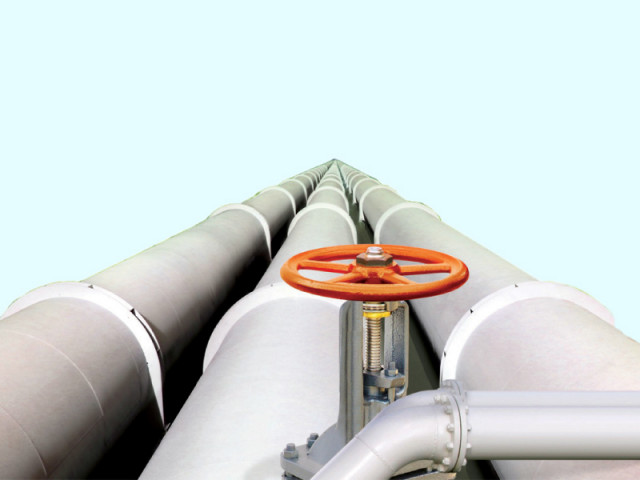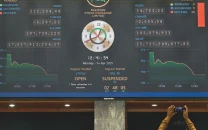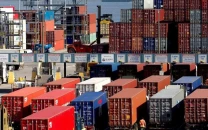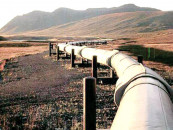Govt poised to do away with cross-subsidies for gas
Developing direct subsidy model for residential consumers to revitalise energy sector

The government is set to end cross-subsidy for domestic gas consumers and introduce a direct budgeted subsidy model by 2026, in line with the mechanism established for the Power Division.
The federal government is locked in negotiations with the International Monetary Fund (IMF) under the Resilience and Sustainability Facility to replace cross-subsidies with direct subsidies commensurate with the consumer income levels under the Benazir Income Support Programme.
In a recent meeting, the Petroleum Division informed the cabinet that they were engaged with the IMF and the new system was likely to be developed by 2026. It said that it had already hired advisory firm KPMG and a dedicated group had been formed to examine the replacement of cross-subsidies as part of efforts to revitalise the gas sector.
It was revealed that residential consumers were benefitting from a cross-subsidy of over Rs150 billion, financed by imposing higher tariffs on captive power plants, industrial and commercial consumers. The Petroleum Division added that, as part of reforms agreed with the IMF, a levy had been imposed on the captive power plants. As a result, gas prices for them have increased, consumption has declined and the ability to cross-subsidise residential consumers has gone down.
It was highlighted while discussing a court case in Balochistan relating to Sui Southern Gas Company (SSGC).
SSGC receives around 111 million cubic feet per day (mmcfd) of gas from Balochistan fields (Sui and Zarghon), which is insufficient to meet winter demand from domestic consumers in the province, which peaks at 210 mmcfd. To make up for the deficit, SSGC diverts gas from its sources in Sindh, which in turn faces low pressure and load management in winter.
SSGC claims that more than 26 billion cubic feet (bcf) – 59% of the total of 44 bcf supplied to Balochistan — was either stolen or illegally consumed by tampering with gas meters. The Petroleum Division said that, as reported, while SSGC's operations in Sindh recorded unaccounted-for-gas (UFG) losses of 9.5% during financial year 2022-23, the losses in Balochistan stood at a staggering 59.7%. The loss resulting from low or no recoveries in Balochistan was estimated at Rs22 billion.
Despite persistently high UFG losses, SSGC continued to operate and invest in the area to support the government's socioeconomic development agenda and to comply with orders issued from time to time by the Balochistan High Court regarding maintenance of adequate supply pressure during winters.
The Balochistan High Court restrained SSGC in May 2023 from charging more than Rs5,700 in monthly gas bills. It also constituted a commission for making recommendations on gas tariffs to be charged in the colder areas of Balochistan.
The commission made the following domestic tariff recommendations: for summer, 200 cubic metres at Rs250 per million British thermal units (mmBtu), totaling Rs2,551 per month; and for winter, 590 cubic metres at Rs500 per mmBtu, totaling Rs8,848 per month. Over five months, the maximum amount payable would be Rs62,092. Consumption above 590 cubic metres would attract the non-protected category tariff of Rs5,174 per month.
The Petroleum Division shared that the Balochistan High Court, through its order dated June 13, 2024, directed SSGC to implement the commission's recommendations with retrospective effect from November 2023, resulting in revenue losses.
In accordance with the notified tariff effective from February 1, 2025 under Section 8(3) of the Ogra Ordinance, 2002, monthly charges for two slabs were worked out as under:
For consumption up to 200 cubic meters, the notified rate is Rs4,200 per mmBtu, totaling Rs15,827, plus Rs2,000 in fixed charges, taking the total monthly bill to Rs17,827. For consumption above 400 cubic meters, the gas charges are Rs106,441 plus Rs2,000 in fixed charges, totalling Rs108,441.
The Petroleum Division argued that the tariff structure recommended by the commission conflicted with the government's approved tariff, causing revenue losses. It was further outlined that the Balochistan High Court's order was challenged by SSGC in the Supreme Court. The apex court, through its order dated October 24, 2024, directed the Oil and Gas Regulatory Authority (Ogra) to thoroughly review the commission's report and finalise recommendations through hearings and consultations with all relevant parties.
The cabinet was informed that Ogra held a hearing on November 11, 2024 and issued its findings on November 22. In its report, Ogra emphasised that commission members could not cite any statutory provision for recommending a special tariff for Balochistan consumers.






















COMMENTS (1)
Comments are moderated and generally will be posted if they are on-topic and not abusive.
For more information, please see our Comments FAQ